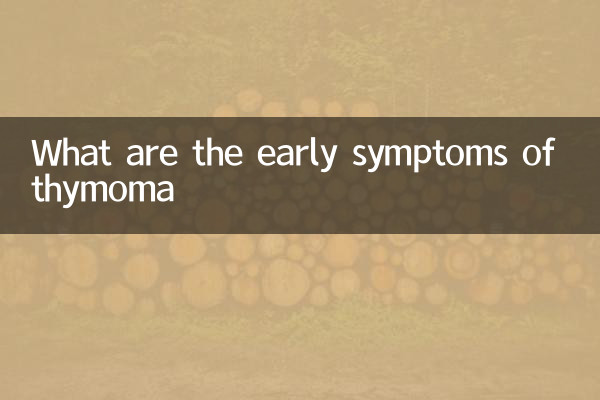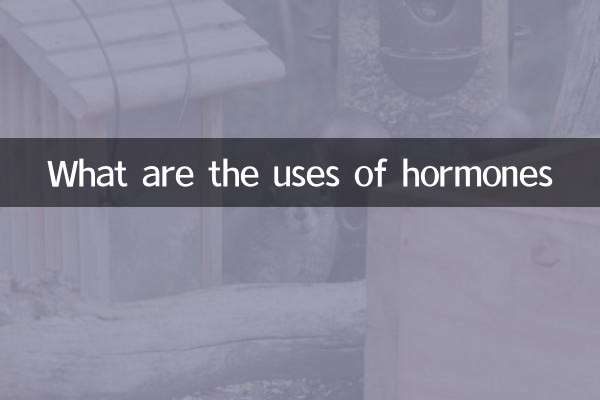What are the early symptoms of thymoma
Thymoma is a tumor that originates from the thymus. Although the incidence is low, early detection is crucial for treatment. This article will combine popular topics and hot topics across the Internet for the past 10 days to introduce you in detail the early symptoms, diagnosis methods and treatment suggestions of thymoma.
1. Early symptoms of thymoma

Early symptoms of thymoma may not be obvious, but as the tumor grows, the following symptoms may occur in patients:
| symptom | describe |
|---|---|
| Chest tightness or chest pain | Tumors compress surrounding tissues or nerves, causing chest discomfort or pain. |
| Difficulty in breathing | Enlarged tumors may compress the trachea or lungs, causing poor breathing. |
| cough | Persistent dry cough or sputum may be related to tumor irritation of the respiratory tract. |
| Hoarse voice | Tumors compress the recurrent laryngeal nerve, causing sound changes. |
| Difficulty swallowing | Tumors compress the esophagus and affects food passage. |
| Skin weakness | Thymoma is often associated with myasthenia gravis, manifested as muscle fatigue and weakness. |
2. Diagnosis methods of thymoma
Early diagnosis of thymoma requires a combination of multiple examination methods:
| Inspection method | illustrate |
|---|---|
| Chest X-ray | Preliminary screening can detect abnormalities in the thymus area. |
| CT scan | Provides more detailed images to help determine tumor size and location. |
| MRI | Further evaluate the relationship between tumor and surrounding tissues. |
| Biopsy | Tumor properties were confirmed by tissue sampling. |
| Blood test | Detection of antibody or hormone levels associated with thymoma. |
3. Treatment suggestions for thymoma
The treatment plan for thymoma must be formulated based on the tumor stage and the specific situation of the patient:
| Treatment method | Applicable |
|---|---|
| Surgical resection | The first choice treatment method for early thymoma, thoroughly removing the tumor. |
| Radiotherapy | For patients who are postoperatively assisted or unable to operate. |
| Chemotherapy | Suitable for advanced or metastatic thymoma. |
| Targeted Therapy | Targeting patients with thymoma with specific gene mutations. |
| Immunotherapy | Emerging treatments are under clinical trials. |
4. How to prevent thymoma
Although the specific cause of thymoma is unclear, the following measures may help reduce the risk of disease:
1.Regular physical examinations: Especially chest imaging examinations can help detect abnormalities in the early stage.
2.Healthy lifestyle: Maintain a balanced diet, exercise properly and have a good schedule to enhance immunity.
3.Avoid exposure to harmful substances: Reduce exposure to radiation and chemical carcinogens.
4.Pay attention to family history: People with a family history of thymoma should be vigilant.
5. The relationship between popular topics on the Internet and thymoma in the past 10 days
Recently, the topic of rare diseases and early cancer screening has been very popular. Many netizens shared their own or relatives’ illness experiences, emphasizing the importance of early detection. Thymoma, as a relatively rare disease, has also sparked widespread discussion. Experts recommend that for long-term unexplained chest tightness, cough or muscle weakness, seek medical treatment and check in time.
In addition, discussions on new technologies for cancer treatment have also attracted much attention. The application prospects of immunotherapy and targeted therapy in the field of thymoma have become a hot topic of concern to the medical community and the patient population.
Conclusion
The early symptoms of thymoma are diverse and atypical and are easily overlooked. Through the introduction of this article, I hope you can have a deeper understanding of thymoma. If you or someone around you experience relevant symptoms, it is recommended to go to the hospital for detailed examination as soon as possible. Early diagnosis and treatment are key to improving cure rates.

check the details

check the details